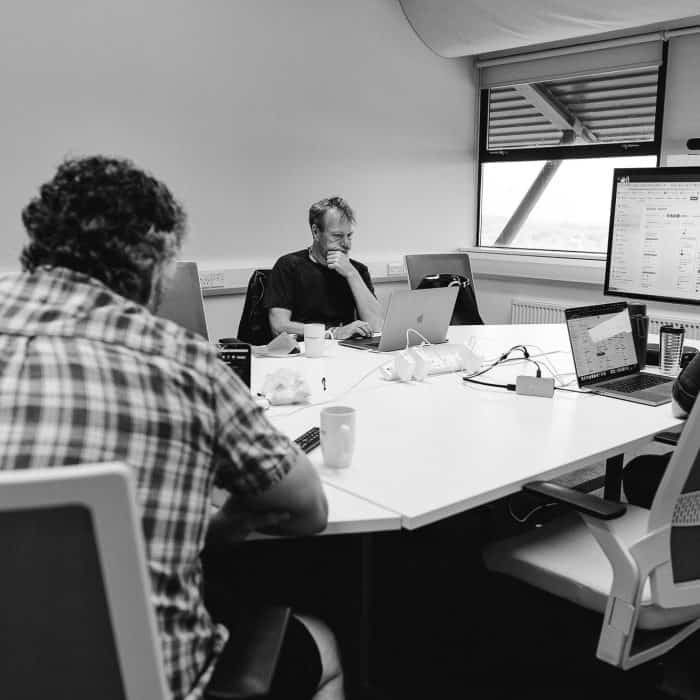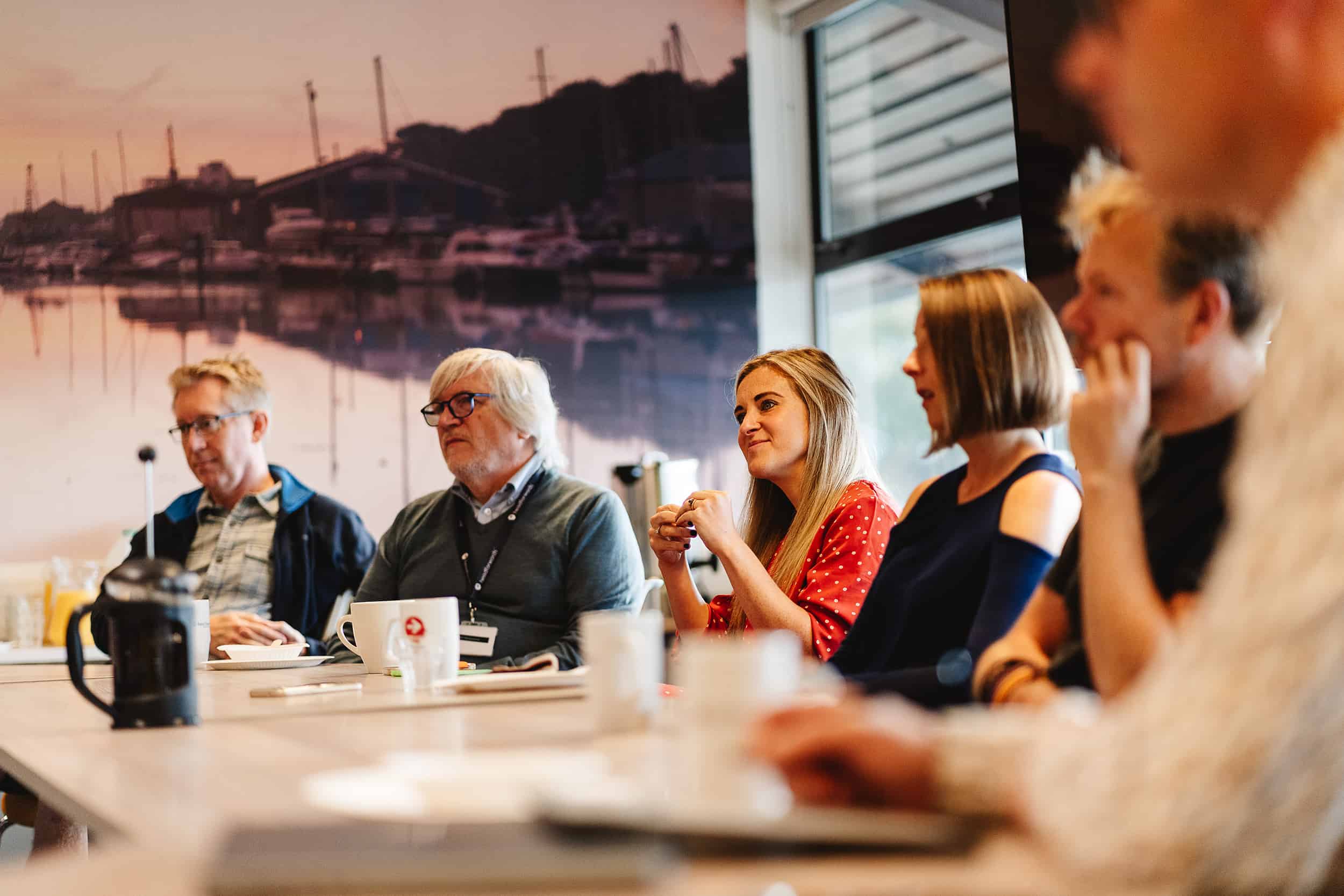
Technical sprints: quick projects with significant long-term value
Unique to Headforwards, technical sprints offer valuable time for analysis, reflection, and upskilling. Product Manager Owen Hodge explains the wide-ranging benefits for all.
Early in the New Year, Headforwards took 10 people to South Devon for what was initially planned as an away day. In fact, it turned out to be three days.
The term ‘away day’ usually conjures up team building exercises designed to bring a group together, build trust and encourage collaboration. Those were included in the team’s objectives for this trip, but what we ended up getting out of it was much more.
The initial plan was to take the 10 people responsible for delivering the company’s strategy, away for a couple of days with an overnight stay.
It was important to get the team away from the day to day and help them enter into a space of focus, encouraging collaboration and concentrating on improving working practices.
Away days are a bit of a marmite strategy – the value must outweigh the cost, not just in monetary terms, but in people’s time as well. This might sound obvious, but these factors are crucial in making the difference between an away day that pays dividends, and one that drains resources.
Having envisaged a hotel with use of an event room, the team found a 14th century former pub with 11 ensuite bedrooms, a dining area, lounge, bar, and kitchen. There were great walks, a snooker table and a dart board.
This hadn’t been the plan at all, but we were excited by the prospect of small groups cooking for the whole team each night, and with a three-night minimum stay, we didn’t have to rush through anything.
Day one would be a reflection on what we had been doing and how we had been doing it, and day two would focus on what we would do differently moving forward.
One of the principles in Headforwards is that we want employees to be empowered – rather than everything happening because one or two people say that’s the way it should happen.
An away day is a great opportunity for those who will deliver the strategy to be involved in planning the activities that will help them meet it. Who better to make decisions about what is going to happen, than those who know the operational day-to-day running, best?
If new strategic objectives are delivered in more effective ways, the overall strategy will be more effective as well; people will work more productively with increased effort. Critically, there will be more passion, which is a sure route to achieving greater levels of productivity.

We used a design thinking process to try and stay disciplined as we worked through the problems we were specifically trying to solve. We often found ourselves going over things we frequently cover, and the result was that there were times during the day where I think many of the team felt frustrated and drained.
Sometimes, the first day of a workshop can leave everyone feeling they are wading through mud – but it’s really important to keep going. As long as you allow ample time to get through everything, a slightly irritating first day will likely make for a very rewarding second day.
This was certainly the case for us – we went into the second day with a clear list of problems that needed solving and the team were able to dive straight into working up solutions. The result was real outcomes that we were able to come away with and implement.
One of the best outcomes from our time away was that by having the flexibility to generate ideas and look at the ‘how’ we would implement them, we all came back to work and put new processes in place; we are self-organising around strategic goals.
It was fascinating to see everyone worked together to decipher how they want to go about making the changes, and took ownership of the process.
Maybe it’s because there was a common approach to coming up with the solutions, or maybe it’s because we worked out how best to work together, but either way, it means there is a renewed focus and ownership of the strategy from the whole team.
We didn’t want to make the entire three days about workshops and nothing else, so renting a self-catered ex pub was a resounding success.
The venue had built in entertainment and plenty of space for people to have time out and group off, but also had great areas suited to a large group gathering together.
We all played pool, most people embarrassed themselves at darts, and we cooked together – an absolute game changer for me in terms of team bonding and something I will always look to incorporate into away days in the future.
Some people went out for runs, others for walks and others just to find a phone signal. As much as the tangible outcomes, it was this ‘hanging out’ that we all really enjoyed.
Like many other organisations, we have been guilty of having strategic conversations that are great at the time, but which lose impact because we don’t follow up on them once back in routine.
A big difference with this away day is that we have come back and started implementing right away. Almost everyone in the team had something to focus on as part of the trip, and we’ve all got straight into moving specific things forward.
We consciously used the second day to drive towards outcomes. Before we finished, we went over what all the outcomes and actions were, recording them and later moving them into a Jira board.
We now have a backlog and live board that we’re collaborating on working through. Whether via this format or another, make sure you consciously drive for outcomes, log them, and start doing them.
Headforwards™ is a Registered Trade Mark of Headforwards Solutions Ltd.
Registered Address: FibreHub, Trevenson Lane, Pool, Redruth, Cornwall, TR15 3GF, UK
Registered in England and Wales: 07576641 | VAT Registration Number: GB111315770